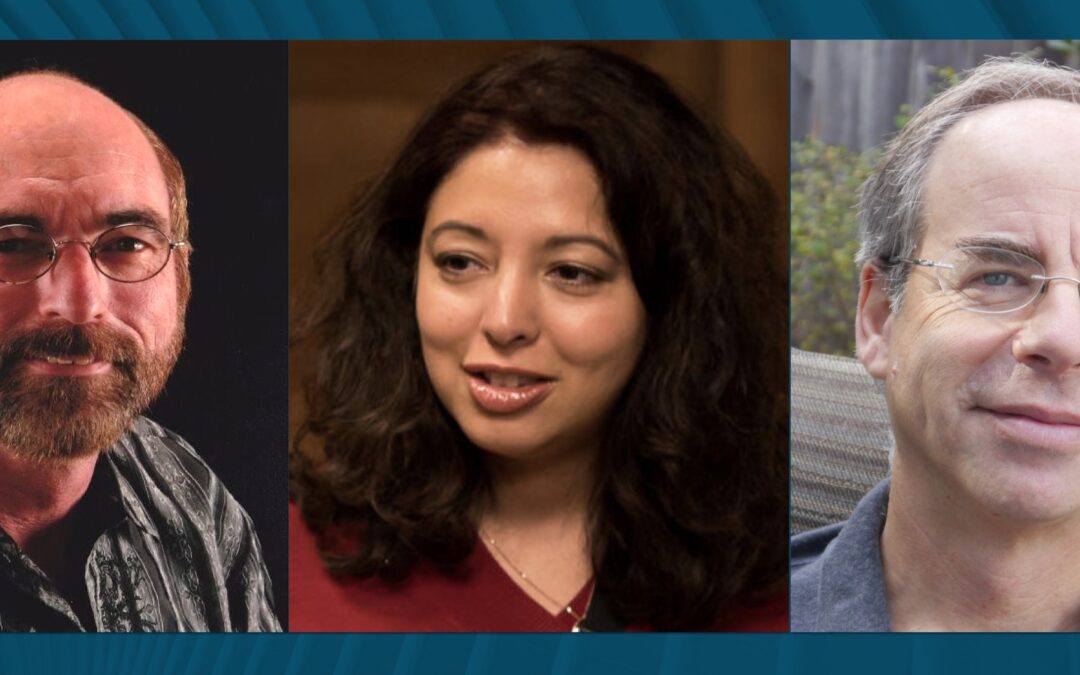Move Over T-Rex, Here Comes The Meg!
By Marina Antunes. Republished with permission from Spark CG Society.Though much of The Meg is played for laughs, in part it’s what makes the movie such an enjoyable bit of entertainment to the tune of $200 million in worldwide box office in its first week, two things are definitely taken very seriously: the action and the titular megalodon, or “the Meg” for short.
The movie takes place at a newly minted research station off the coast of China. During their inaugural research assignment, a group of scientists find themselves trapped in deep-sea waters. Enter Jonas Taylor (Jason Statham), an experienced rescue diver brought in to save the crew who then finds himself, with the help of scientist and all around badass Suyin (Bingbing Li), saving pretty much everyone.
The movie culminates in a third act arc in which Jonas finds himself in a breathless showdown with the Meg. VFX Supervisor Sue Rowe and her team at Sony Pictures Imageworks (SPI) were tasked with creating the final action sequence which is an impressive feat of kinetic movement, but achieving it wasn’t an easy task.
“We did about 300 shots, which is actually not that big, especially for Sony.” Rowe explained. “Many of us on the team had done larger projects, but because it was a computer generated character and it’s all CG under water… the number of shots is smaller but the challenge is very high.”


To begin with, the team was tasked with creating the underwater environment of Sanya Bay without reference photos. “Even in the clearest, most beautiful waters, which are around Sanya Bay, after 10 or 15 feet, the water density, the particulate in the water and the way the light travels, you don’t actually see that far.” This is problematic when you have a 75-foot shark to frame. “To get [the Meg] into a shot, you need to move the camera a long way back, like 300 feet but if you were to pull a camera back for real in an underwater environment, you would lose all definition. You have to cheat a little.”
The team at SPI pushed the envelope to get the shots they needed, marrying science and artistry to achieve a look that everyone was happy with, including director Jon Turteltaub. Rowe and her team were constantly rethinking the shots because even when the correct math was employed, it didn’t necessarily yield the right results. ”One of the things I love about the team here at Sony is that they know that. Just because the math is correct, doesn’t mean it’s perfect. They are real artists as well scientists.”
And some of that artistry is clearly on display in The Meg. The team built an underwater city of corals for their action sequence. “I say ‘city’,” Rowe explains, “However it was all rocks and corals, but there were specific points in our 3D environment where certain key events took place: this is where the bite happens, this is where they go into the corals. It’s a map of the area.”
To build that environment, the team used an in-house tool called Sprout. “It’s a paint tool that allowed me as a VFX supervisor to select where rocks, coral, sand etc. are placed and they would be painted into place in three dimensions.” The tool isn’t completely unheard of in the realm of science technology but as Rowe explains “It’s so efficient and clever and it automatically updates which made my life hugely simple and I was easily able to art direct.”


One of the other challenges Rowe and her team had to overcome was making the scenes look like they were taking place underwater. Even with the addition of chromatic aberration, bubbles, particulates, and silt on the ground, that wasn’t always obvious and this took some creative thinking. “We added these things that I call ‘streamers’.” Essentially, they are streamers of bubbles coming out of the shark’s nose and gills. “It kind of looked like it was fizzing, but it really told us that that Meg was travelling through water and you suddenly felt the power of how fast it was moving.”
Another example of out-of-the-box thinking was in achieving the Meg’s menacing look. “The animation team did a really amazing job to give the Meg a real sense of evil. It had to look scary, formidable, powerful and if you actually look at sharks they’re scary because they have these calm, cold, dead eyes and because they’re sharks. If you want to make one feel like it was pursuing you, then you would need to employ some extras to make it feel like she was really determined and to give it some personality.”
One of the ways Rowe accomplished that was by asking animation supervisor Craig McPherson to give her a control so she could have a little bit of a brow on the shark. “What we realized is that if we dip the shark’s head by 15 degrees and gave it just the tiniest of brow, it looked mean.”
In addition to Sprout, Rowe and her team used a combination of tools to achieve the challenge put forth by the project. Houdini was the weapon of choice for the water simulations but getting Meg’s size and proportion was a challenge all its own. The team used Ziva, a tool created by a team of Vancouver natives, to help bring the Meg to life. “The tool is very anatomically based and is based on the concept that if you build your shark, or any animal, with the right skeletal structure, you will then be able to derive how the muscles should contract and how they will move.”
Rowe had used the tool on a previous project and brought in James Jacobs, founder of Ziva Dynamics, to help her team muscle the Meg. “The animators loved it because it didn’t take away from their artistry of making Meg move in a clever, smart, intuitive way; they had all the freedom to do the creative stuff but they didn’t then have to do the secondary animation on how the belly would wobble or how the gills would open and close or how the water resistance would impact the flesh when the head moves.”

Muscle simulation.
The team also employed Massive for what Rowe admits is one of her favourite shots of the film. For reference, Rowe and production side VFX supervisor, Adrian de Wet, used a photo of hammerhead sharks near Cocos Island. “They swim together in these beautiful blue waters. Adrian and I thought it was really beautiful and we wanted to include it in the movie somewhere.” The shot, which comes late in the film, is very striking and features a shiver of sharks as it closes in for a meal. “The team animated a little cycle. When two sharks get too close to each other, one nips the other which gives them a little bit of interaction, as if they all know they are next to each other. This makes it a little more visually interesting.”
Though The Meg makes excellent use of the visual effects, the film’s climax is a mix of digital wizardry and practical artistry. Jason Statham, a former Olympic diver, was quite comfortable working underwater and as Rowe explains, shooting part of the scene in a tank, for real, was hugely advantageous. “You get the buoyancy and the way that humans look underwater. The downside was this also created a lot of roto work for her team who extracted Statham from the tank background. Lastly, we added lots of CG bubbles because how we used the images were not necessarily how they were shot — meaning Jason needed to look like he was being pulled by the Meg through the water, so we added CG bubbles flowing behind him.”

Final comp.
For the one-on-one showdown between Statham and the Meg, the scene was shot on an outdoor set in New Zealand using a buck which allowed the team to get the physicality of Statham’s stabbing motion. “Everyone assumes it’s all done in CG but you speak to any VFX supervisor and they’ll tell you to try to shoot something for real.” Even so, Statham was replaced on both the rising and falling with a digital double but the moment when he stabs the shark in the eye “that’s 100% Jason.”
All images © 2018 Warner Bros. All Rights Reserved.
 |
Marina Antunes is a Vancouver-based writer who has been dishing on film for various websites since 2005. She is the Editor-in-Chief of Quietearth.us and co-hosts a film podcast called After the Credits. Marina is a member of the Online Film Critics Society and the Alliance of Women Film Journalists. She joined the Spark CG Society as Festival Director in 2013. |

